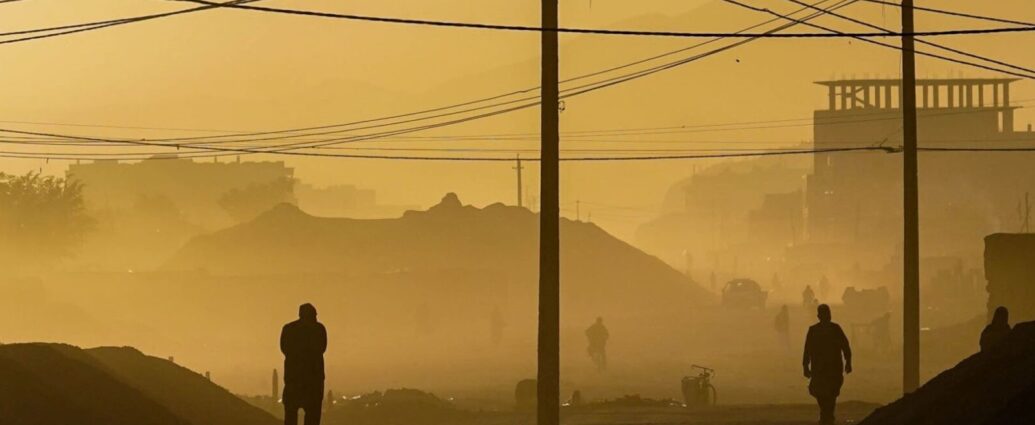Clara Zimban
[Clara Zimban attended the ACAA London Peace Conference for Afghanistan on June 19th 2023, all quotes come from the presentations made on the day.]
Two years since the Taliban returned to power in Afghanistan, after the United States withdrew their remaining troops, the UN have documented numerous human rights violations against Afghans.
Against this backdrop, the Afghanistan and Central Asian Association (ACAA) held the London Peace Conference for Afghanistan on June 19th 2023. Darius Nasimi, son of the director of the ACAA Dr Nooralhaq Nasimi, urged the diaspora to become “a new voice for the people and influence government policy.”
The UN Assistance Mission in Afghanistan has reported that, since August 2021, discriminatory edicts have confined women away from public life. The Taliban have denied girls’ and women’s right to access secondary education, work freely, and participate in public decision-making and civil society.
Four decades of instability
This humanitarian crisis unfolding in Afghanistan is only the most recent development of a four-decades-long period of bitter conflict.
Speaking at a peace conference held in June, Dr Nooralhaq Nasimi, Director of the Afghanistan and Central Asian Association lamented, “We have been suffering for forty-four years.”
“We have been suffering for forty-four years.”
Afghanistan has been trapped in the middle of international power dynamics and convulsed by domestic conflicts since the Soviet military invaded in 1979. From this point onwards, the country was plunged into crisis, from foreign invasions to civil war and oppressive Taliban rule.
This prolonged period of violence has fostered a long sequence of humanitarian crises. On average, 3.4 million Afghans have found refuge in another country every year, between 1980 and 2020. In 2022, 5.7 million Afghan refugees had found asylum outside of their country, representing the third largest diaspora in the world, after Syrians and Ukrainians.
In the face of this alarming situation, Dr Nasimi said that “one of the reasons why [Afghans] are suffering is because there is no unity among the diaspora community. We become very small sections and small groups, while we have a common enemy.”
He went on to say, “I consider this conference as a brainstorming on how we can form a diaspora platform to address the humanitarian crisis.”
Geopolitical Insights
At the conference, Alexander Gilder, a Lecturer in International Law and Security at the University of Reading, shed some light on the complexities of the Taliban’s rule.
“The UN is between a rock and a hard place”
He said, “there is an incredibly difficult relationship between the UN leadership in Afghanistan and the Taliban. The problem is that the UN working closer with the Taliban goes towards giving them legitimacy as government of Afghanistan. The UN is between a rock and a hard place, if it withdraws its mission and refuses to work with the government sitting in Kabul, people suffer, aid is not being delivered, and the UN cannot monitor human rights abuses.”
The United Nations has been criticised for inaction against the Taliban, and human rights activists argue that foreign aid provided to the Taliban gives their government an increased sense of legitimacy.
Agnes Termeer, Lecturer in Security Studies at Leiden University, has claimed in a recent paper that “rebel groups need legitimacy to sustain their existence, exercise power and maintain support.”
Alexander Gilder went on to say, “Greater UN involvement necessarily means entrenching the Taliban.”
He believes that the UN assistance mission in Afghanistan has also been struggling to effectively deliver international aid, report human rights abuse or prevent Afghanistan from becoming a haven for terrorist organisations such as Al-Qaeda.
The Taliban also find legitimacy in their relationships with other countries, including neighbouring Pakistan and Iran, as well as China and Russia.
Peace for Afghanistan
At the conference, British Afghan and the son of Dr Nooralhaq Nasimi, Darius explained that the country’s future was not riddled with the violence and tragedy of its present. When freedom, fundamental human rights, public life and security are under siege, he outlined the portrait of what a peaceful Afghanistan may look like and how this can ripple throughout the entire region.
He said, “If Afghanistan becomes a stable neighbour, it can really harness its potential as the heart of Asia […] promote investment and infrastructure development, connect the region and unlock opportunities for all.”
“Children spoke to me about a desire for peace even thought then they had suffered 30 years of war.”
Throughout the conference, this idea was echoed by various speakers including Arabella Dorman, a war artist and activist who has worked in Afghanistan since 2006.
She said, “During my time in the country, I was rewarded with some of the most incredible examples of human hope, female courage, tenacity and native intelligence despite a lack of education. Children spoke to me about a desire for peace even thought then they had suffered 30 years of war.”
She went on to say, “As an artist, I don’t begin to pretend that art can affect meaningful change, but I do hope that what art can do is create a platform upon which you can suggest a moral matrix, trying to make people change their perceptions.”
In 2018, Dorman unveiled an installation artwork called Suspended, the piece was composed of hundreds of items of clothing that had been discarded by refugees upon their arrival in Lesbos.
“Thousands of people came to look at it, and most of them wept,” she said.
This conference was the first in a series the ACAA plans to hold each month, in hopes to bring about positive change for Afghanistan.
READ NEXT:
-
AT WAR WITH WILDFIRES: THE CLIMATE IN GREECE
-
LABOUR MP JESS PHILLIPS FACES ‘RACIST AND BULLYING’ ACCUSATIONS
-
‘A GLOBAL EPIDEMIC OF DOMESTIC VIOLENCE’: NATALIE HEMMING’S STORY
Featured image courtesy of Mohammad Rahmani on Unsplash. No changes have been made to this image. Image license found here.

